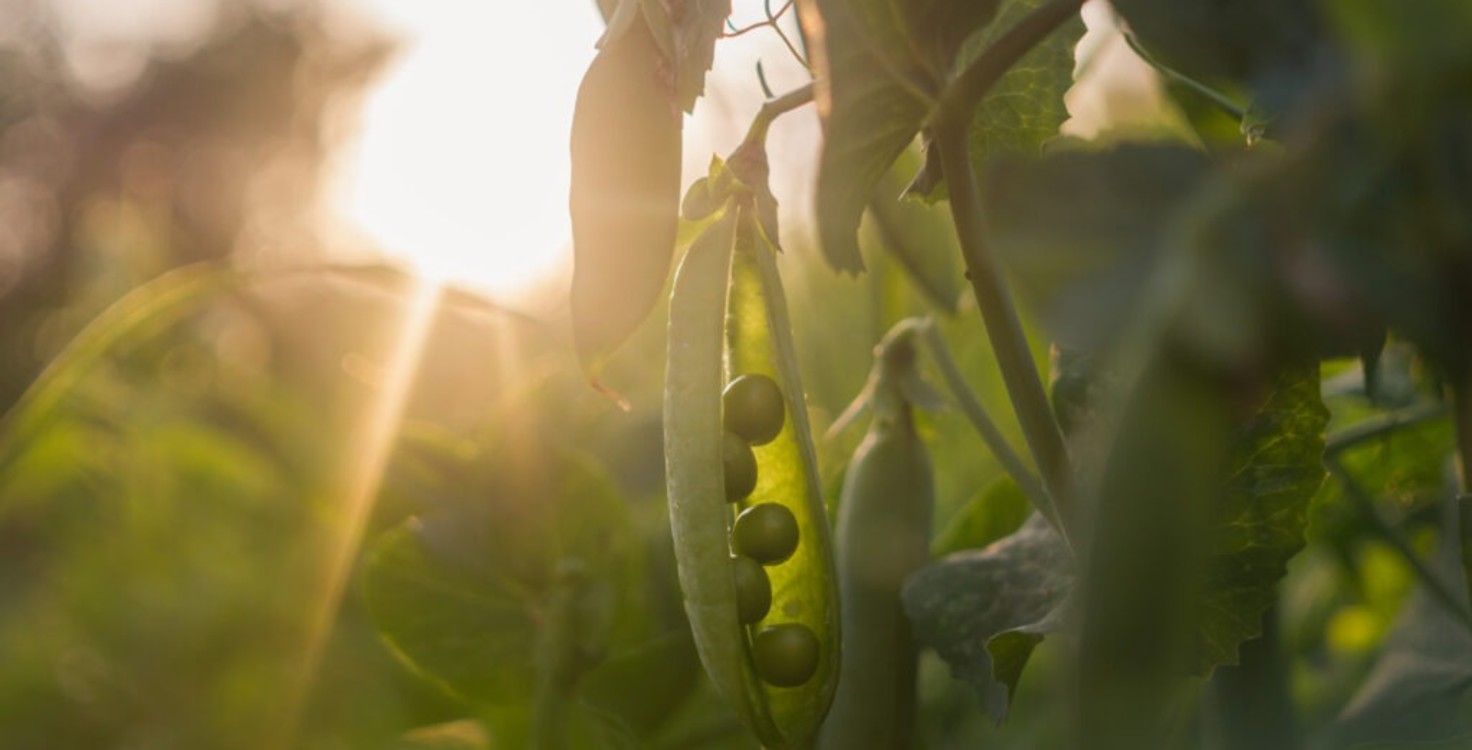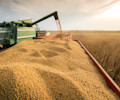New report shows sustainable proteins not only offer mitigations for climate change, but innovations are also leading to reductions in cost, making them more affordable for consumers.
Food giants involved in FAIRR’s engagement, including Mondelez, Walmart and Tesco have released more affordable plant-based products.
35% of engaged companies have committed to increase the volume or sales of alternatives to meat and/or dairy. This figure is up from 28% in 2021 and 0% in 2019.
Jeremy Coller, Chair and Founder, FAIRR: “From precision fermentation to plant-based meatballs, innovation in alternatives to meat is disrupting the commodities market and bringing new, more sustainable choices to consumers.”
A new report from the $68 trillion-backed FAIRR investor network, drawing on a six-year engagement with 23 leading food manufacturers and retailers, reveals increased focus by retailers to provide more affordable plant-based meat and dairy alternatives to meet consumer demand for alternatives and to meet retailers’ own climate goals.
FAIRR’s Sustainable Protein engagement is supported by 84 investors (collectively managing $23 trillion in assets) and engages with companies including Walmart, Tesco, Unilever, Kraft Heinz and Nestlé. Participating investors include Columbia Threadneedle Management Limited, Amundi, and Canada Post Corporation Pension Plan.
Alternative proteins present a unique investment opportunity, combining environmental stewardship with financial return. This is reflected in the increasing numbers of investors joining FAIRR’s engagement, and in the fact that alternative protein companies raised $1.7 billion in the first half of 2022 (1H 2022)1 , demonstrating a stable growth rate (2%) compared to 1H 2021.2
Reports predict that plant-based products could reach parity in taste, texture, and cost between 20233 and 20314, with the alternative protein market size forecasted to represent 10%-45% by 2035 and 25%-50% by 2050 of the total protein market. Rising inflation is also driving closer price parity. In the UK, for example, FAIRR finds the cost of Oatly oat milk has fallen from almost 2.5 times higher than dairy milk in 2019, to just 12% higher per litre today.5 Research shows the average price per unit of plant-based meats has increased by 3% this year, compared to a much greater 6% increase for conventional (frozen and refrigerated) meat.6
Engagement findings: Affordability and innovation
Companies involved in FAIRR’s engagement have collaborated directly with food tech start-ups to incorporate novel technologies into their portfolios. Findings from the engagement suggest that fermented-enabled protein could become the next preferred alternative food technology, with companies allocating significant amounts to R&D budgets to allow for more innovation.
Consumer engagement continues to be the lowest-performing area for engagement companies, given the lack of an overarching strategy to accelerate consumer uptake. However, once seen as a premium-priced indulgence, engagement companies are now increasingly making concerted efforts to increase alternative proteins’ accessibility and affordability.
Mondelez has launched plant-based Philadelphia cheese products at the same price range as the dairy versions, Walmart has incorporated plant-based products into its affordable ‘Great Value’ brand and, in the UK, Tesco‘s vegan ‘Plant Chef’ range is 11.6% cheaper per kilo than comparable own-brand meat products, according to FAIRR research.7
More innovative and affordable sustainable proteins are likely to become a key resource in tackling future climate related food security issues. The IPCC’s chapter on Food Security states that projected future climate changes will increasingly impact food security. It points to the reduction of meat consumption as an adaptation measure as it reduces pressure on land and water.8
Engagement findings: Tackling climate change
FAIRR’s Sustainable Protein engagement encourages companies to diversify their portfolio, by reducing their exposure to animal-derived products and increasing sustainable sourcing practices across proteins.9 This aligns with the long-term recommendations of the EAT-Lancet Commission, which recommends a macronutrient intake split of 60% plant-based protein sources and 40% animal-derived (including meat, fish and eggs).10 The number of engagement companies setting targets continues to increase. In 2022, 35% of the engagement companies have committed to increasing the volume or sales of meat and/or dairy alternatives. This figure is up from 28% in 2021 and 0% in 2019.
Another key ask of engagement companies is to set Scope 3 emission targets and disclose progress metrics and many (65%) have set SBTi-approved Scope 3 goals as well as net-zero commitments (70%). However, only 50% of these net-zero commitments cover Scope 3 emissions, and with animal agriculture accounting for approximately 33% of total GHG emissions, companies must robustly address GHG emissions linked to animal-derived products if they intend to reach their carbon reduction goals.11
Jeremy Coller, Chair and Founder of the FAIRR Initiative, said:
“From precision fermentation to plant-based meatballs, innovation in alternatives to meat is disrupting the commodities market and bringing new, more sustainable choices to consumers. Combined with inflation that is driving the price of traditional meat and dairy up at a quicker rate than alternatives, we are starting to see a world where plant-based meat and dairy is just as affordable as conventional animal-based products. Over the six years of FAIRR leading this investor engagement, we have seen the conversation with leading food brands change from whether to consider alternative protein products, to how to scale up quicker to keep pace with consumer demand.”
Sofia De La Parra, Sustainable Protein Engagement Lead, the FAIRR Initiative, added:
“This year, FAIRR has provided an outlook for each company as opposed to a score. The outlook reflects a company’s progress since the last phase of the engagement and FAIRR’s view on its expected trajectory for the next 12-18 months.
FAIRR and its investor members are pleased with the companies’ progress since this engagement began in 2016. However, more must be done, with 48% of companies scoring a ‘neutral’ outlook indicating they will maintain rather than accelerate their improvement. With so many companies publicly declaring net-zero commitments, product portfolio diversification away from animal agriculture will be essential to meet these without resorting to offsetting.”
Marcus Wilert, Vice President, Responsible Investment, Columbia Threadneedle Management Limited, said:
“Our active engagement in FAIRR is underpinned by our recognition of the dual value proposition of positive environmental and health implications and consumer interest. The transition to sustainable proteins has several positive aspects such as health, animal welfare and reduced environmental impact. This is also reflected in consumer sentiment and companies need to understand the specific preferences of sales markets to effectively capitalise on this trend. Developing and delivering strategic and evidence-based consumer engagement campaigns is key to capturing the opportunity of growth presented by a well-marketed portfolio of diverse protein products.”
Karen Lockridge, Director, ESG Investing, Canada Post Corporation Pension Plan, said:
“We are committed to supporting the global goal of achieving net-zero emissions by 2050 or sooner. With food systems currently accounting for around a third of global greenhouse gas emissions, the development of more sustainable diets will play a crucial role in achieving the goals of the Paris Agreement.
As investors we recognise the risks facing our current food system, and alternative proteins present a crucial opportunity in the transition to a more resilient food future, enabling us to achieve food and nutrition security goals.”
Lorna Lucet, ESG Analyst – Head of Consumer, Amundi, said:
“FAIRR’s sustainable proteins engagement, now in its sixth year, has acted as a catalyst for collective change within the food sector. There is strength in numbers and, as one of 84 investors involved, we have witnessed first-hand the value of collaboration.
By engaging with 25 large market players all at once, the engagement has been successful in putting climate transition proteins on people’s plates at scale. The results demonstrate the effectiveness of the collaborative approach, and the six phases have allowed us to drive real-world outcomes and ultimately support a sustainable, nutritious, and just transition of the global food system.”
Hanneke Faber, President Nutrition, Unilever, said:
“Over the last few years, FAIRR has been a supportive partner and advisor on Unilever’s plant-based journey in Nutrition and in Ice Cream. We have accelerated our portfolio shift and innovations to plant-based, as well as setting an annual 1 billion € sales target from plant-based foods by 2027. We are delighted that we have maintained our top scoring position in FAIRR’s 2022 Sustainable Protein ranking. As one of the largest food companies in the world, we believe we can and must help redesign the global food system by diversifying food consumption towards a more balanced, plant-based diet that supports human and planetary health.”
Imke van Gasselt, VP Health and Sustainable Diets, Ahold Delhaize, said:
“Our family of great local brands is deeply committed to sourcing responsibly and helping customers make more healthy and sustainable choices, not only for themselves, but also for the world around them. Our company is guided by our healthier people and healthier planet strategy, which includes the promotion of alternative proteins and plant-based foods. We aim to work together with our investors in the challenge of building a more sustainable food sector and are thankful to FAIRR and all the investors involved for their continued dialogue.”
Notes to the editor
Company-specific results on the 23 companies targeted are available at these links: Ahold Delhaize, Amazon (Whole Foods), Carrefour, Coles, Conagra Brands, Costco, General Mills, Groupe Casino, Grupo Nutresa, Hershey, Kerry Group, Kraft Heinz, Kroger, Loblaw, Marks & Spencer, Mondelez, Nestlé, Sainsbury’s, Saputo, Tesco, Unilever, Walmart, Woolworths
[1] GFI analysis of PitchBook Data, Inc.
[2] FAIRR (2022) Climate Transition Proteins: Flavour of the Future, pg. 7
[3] Boston Consulting Group (2022). The untapped climate opportunity in alternative proteins. Available from: https://www.bcg.com/pl-pl/publications/2022/combating-climate-crisis-with-alternative-protein
[4] Larson B. and Chafin, C. (2022) Plant-based protein: parity on the horizon. Kearney. Available from: Plant-based protein: parity on the horizon (kearney.com)
[5] FAIRR (2022) Climate Transition Proteins: Flavour of the Future, pg. 9
[6] The Good Food Institute (2021). Plant-Based state of the industry report. Pg 37. Available from: https://gfi.org/wp-content/uploads/2022/04/2021-Plant-Based-State-of-the-Industry-Report-1.pdf
[7] Contact ESG Communications for source
[8] Mbow, C., C. Rosenzweig, L.G. Barioni, T.G. Benton, M. Herrero, M. Krishnapillai, E. Liwenga, P. Pradhan, M.G. Rivera-Ferre, T. Sapkota, F.N. Tubiello, Y. Xu, 2019: Food Security. In: Climate Change and Land: an IPCC special report on climate change, desertification, land degradation, sustainable land management, food security, and greenhouse gas fluxes in terrestrial ecosystems [P.R. Shukla, J. Skea, E. Calvo Buendia, V. Masson-Delmotte, H.-O. Pörtner, D.C. Roberts, P. Zhai, R. Slade, S. Connors, R. van Diemen, M. Ferrat, E. Haughey, S. Luz, S. Neogi, M. Pathak, J. Petzold, J. Portugal Pereira, P. Vyas, E. Huntley, K. Kissick, M. Belkacemi, J. Malley, (eds.)]. In press.
[9] The goals of FAIRR’s Sustainable Protein engagement are: 1) Set timebound commitments to grow the share of sustainable and nutritious plant-based and alternative proteins and ingredients in product portfolios, enabling consumers to transition to sustainable and healthy diets that do not involve the excess consumption of animal-based products. 2) Support and enable a dietary transition towards fewer, higher-quality animal-based products, while building sustainable food systems. 3) Take a comprehensive, global, evidence-based approach to protein diversification, supported by metrics reported publicly every year.
[10] EAT-Lancet Commission (2019) Summary report of the EAT-Lancet commission. Available from: https://eatforum.org/content/uploads/2019/07/EAT-Lancet_Commission_Summary_Report.pdf
[11] FAIRR (2022) Climate Transition Proteins: Flavour of the Future, pg. 30
[12] Crippa, M., Solazzo, E., Guizzardi, D. et al. (2021) Food systems are responsible for a third of global anthropogenic GHG emissions. Nat Food 2, 198–209. https://doi.org/10.1038/s43016-021-00225-9
About FAIRR
The FAIRR Initiative is a collaborative investor network, founded by Jeremy Coller, with a membership of $68 trillion assets under management. FAIRR works with institutional investors to define the material ESG issues linked to intensive livestock and fish farming systems and provide them with the tools necessary to integrate this information into their asset stewardship and investment decisions. This includes the Coller FAIRR Index, the world’s first comprehensive assessment of the largest global animal protein companies on environmental, social and governance issues. Visit www.fairr.org and follow @FAIRRInitiative
Media contacts
For more information, including interviews and comment, please contact:
Mike Marshall, ESG Communications
t: + 44 (0)7728 816426 | e:mikem@esgcomms.com











